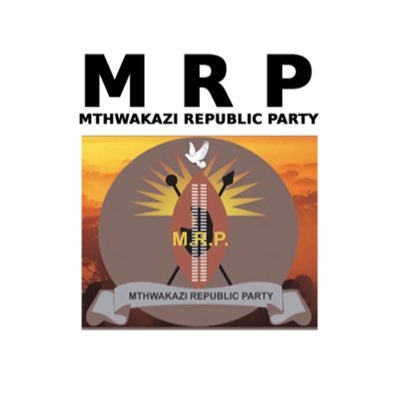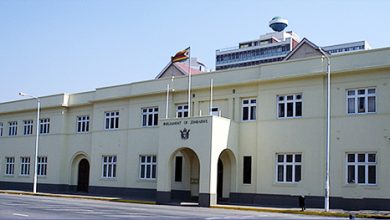Police thwart MRP march to Mhlahlandlela

A planned Mthwakazi Republic Party (MRP) march to deliver a petition to Mhlahlandlela Government Complex in Bulawayo, Friday, was cancelled after the police ordered the party to send only five representatives.
The party had planned to march to Mhlahlandlela to present their petition on the status of education in Matabeleland schools, which they believe is exacerbated by teachers who are unable to communicate in local indigenous languages spoken by the communities where they are deployed.
When MRP sought clearance to conduct their activity, the police allegedly advised the political party that only five of its members would be allowed to go to Mhlahlandlela.
However, MRP leader Mqondisi Moyo told CITE that this restriction was “ridiculous,” claiming they had witnessed the ruling Zanu PF party addressing “many” people at Tredgold last week.
“Police delayed in releasing the clearance and they said our march will be restricted to five people if it’s a peaceful demonstration. We then thought no, we will re-strategise because we saw Zanu PF at Tredgold last week, singing, inciting public violence and causing disorder,” he claimed.
“This is why our youth team is strategising for next week, we refuse to be given a number of five people, which is a restriction. It seems the police are doing so. It seems to those who are watching that only five people have expressed interest in our cause, therefore MRP has no support.”
The issue of non-local language-speaking teachers is a cause of concern, and last year in October, Zimbabwe’s education minister, Dr Evelyn Ndlovu, urged Members of Parliament from minority language communities to encourage people to enrol in teacher training colleges, citing a shortage of qualified teachers to teach minority languages.
The education minister claimed training institutions are short of teachers who can teach in minority languages, emphasising that this problem was widespread in Matabeleland, where many instructors who were deployed lacked the essential Ndebele language competence.
Therefore, the MRP leader Moyo stated their party petition was critical since it addressed the issue of poor pass rates in Matabeleland North, Matabeleland South and a part of the Midlands.
“What we have since discovered in all these schools, particularly in Matabeleland North is that there are non-local speaking teachers. So our petition is a guide to encourage communities to push, stand up for their rights and demand that their children be taught by teachers who can speak their mother language,” Moyo said.
Moyo went on to say that while the subject of teaching in one’s mother tongue has been raised multiple times, the government continues to employ non-local language speakers. “How can the government deploy non-local language-speaking teachers to teach children, including at ECD level,” he questioned.
“This makes us believe that the government wants to deprive Matabeleland of education, so that marginalisation continues. As a party, we are doing all that is within our means to make sure this is addressed and if it means schools must close, they will close.”
In 2016 at Lupane, some MRP members including villagers and the school development chairman were arrested after they demanded the removal of a non-Ndebele-speaking headmistress, Millet Bonyonge, from Mlamuli Secondary School.
The headmistress was later transferred with six other teachers from the same school by the Ministry of Primary and Secondary Education.






